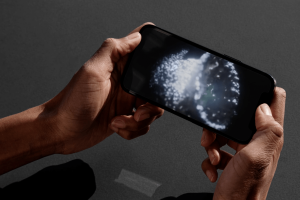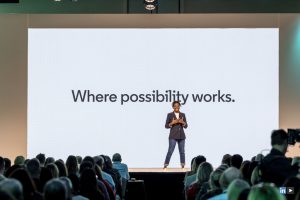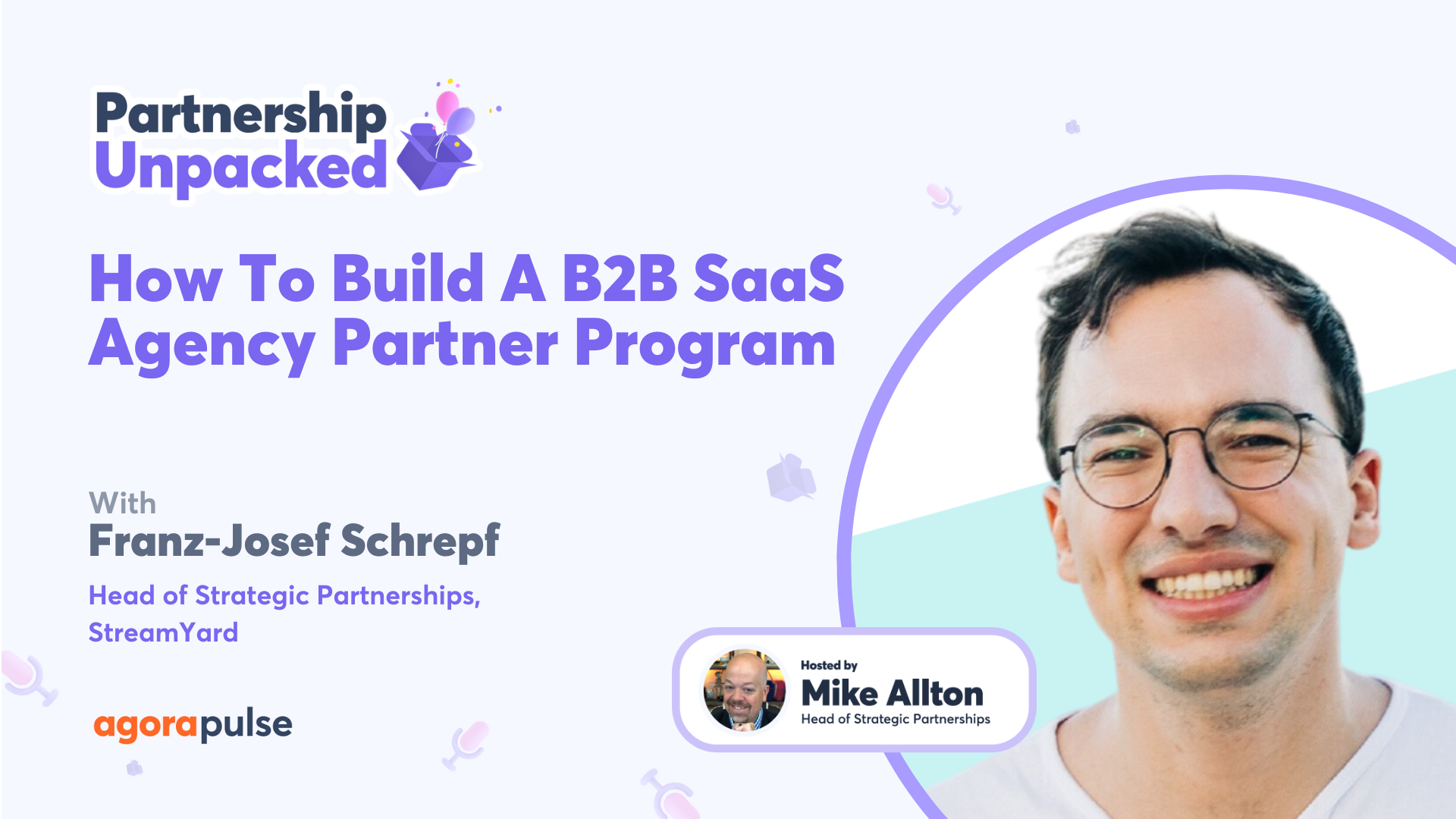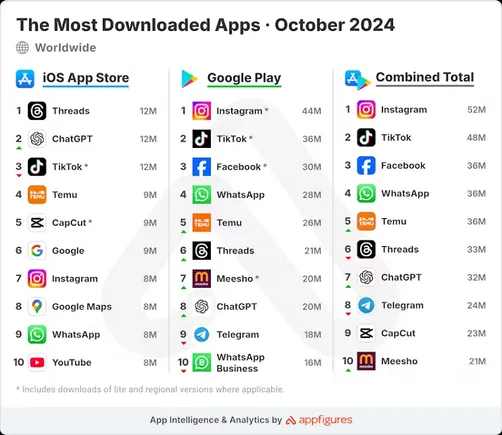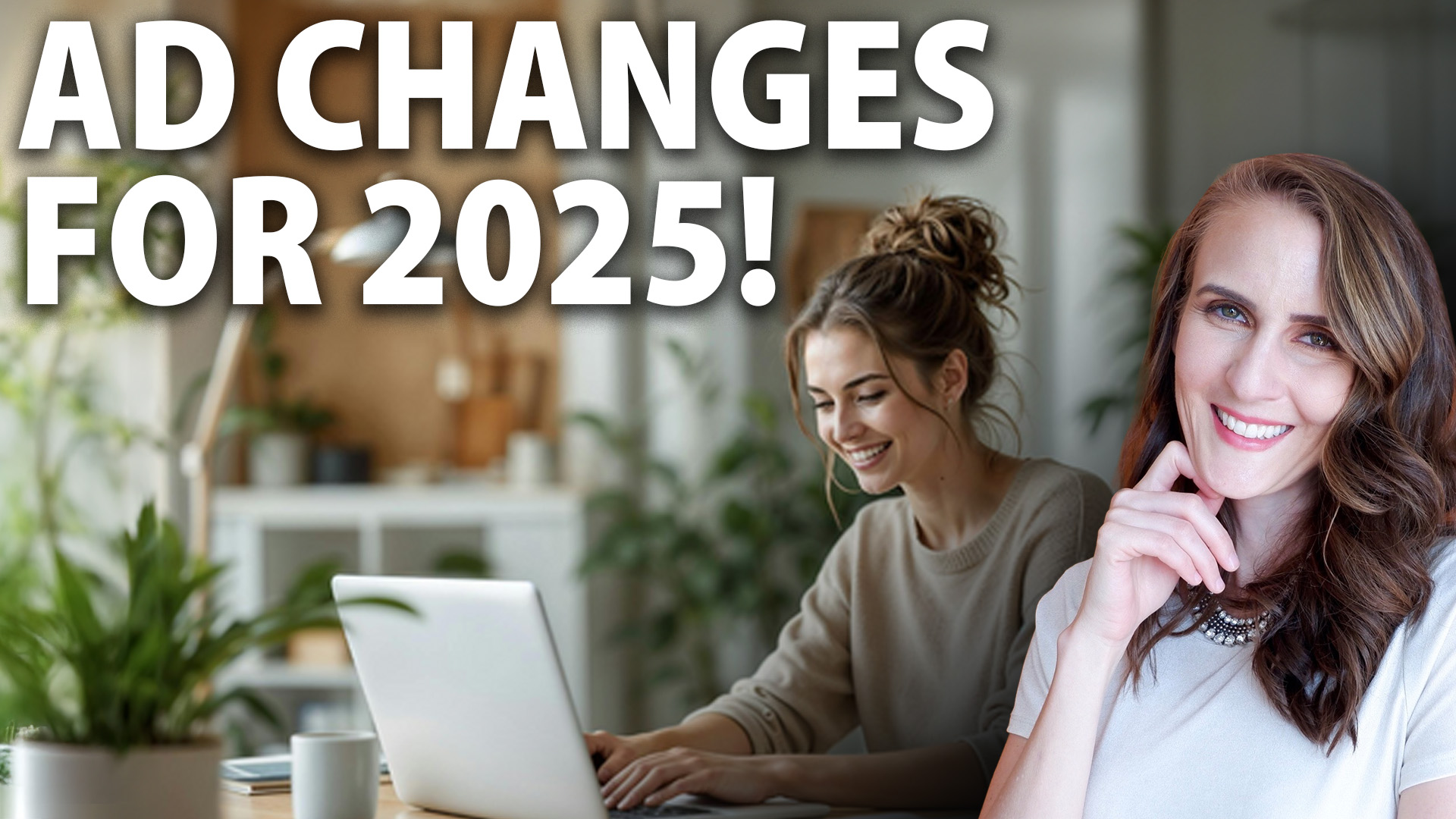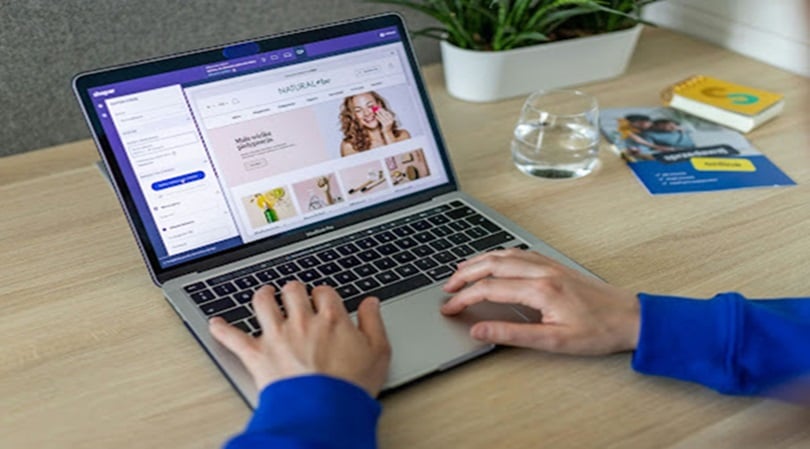B2B SaaS companies all have a shared challenge:
Helping their customers actually succeed with their product.
You can have all the help videos and tutorials in the world, but sometimes customers want someone else to do the work and for that, they’re going to turn to an agency.
Should we partner with agencies? What should that look like?
That’s what we’re covering in today’s episode of Partnership Unpacked.
Welcome back to Partnership Unpacked, where I selfishly use this time to pick the brains of experts at strategic partnerships, channel programs, affiliates, influencer marketing, and relationship building… oh, and you get to learn too! Subscribe to learn how you can amplify your growth strategy – with a solid takeaway every episode from partnership experts in the industry.
And throughout our time together we’ve certainly talked about many different kinds of partnerships, including agency partnerships. However, in our episodes with Dale Wilson and Rachel Nulman-Schapiro the focus was more on how agencies themselves can leverage partnerships. But what about SaaS companies like ours here at Agorapulse?
We already have a massive base of thousands of marketing agencies using Agorapulse, and have an annual event, Agency Summit, that’s attended by over 3,000 digital agencies. Is that a community we should be tapping as partners?
That’s exactly what Franz-Josef Schrepf is going to talk to us about.
During the height of the pandemic and everyone’s rush to leverage online events, Franz stood up Hopin’s channel program, app store, and strategic alliance efforts, and helped that company’s rapid rise from zero to $7.75 Billion dollar valuation. He is the host of The Partner Ship 🚢, a bi-weekly LinkedIn Live show where partnership leaders share their tricks of the trade, and currently serves as the Head of Strategic Partnerships for our favorite live streaming tool, StreamYard.
Partnership Unpacked host Mike Allton talked to Franz-Josef Schrepf about:
♉️ Why starting small is a good thing
♉️ Where to start with a new agency partner program
♉️ How to trim and scale your program to success
Subscribe to the show calendar: agorapulse.com/calendar
Learn more about Franz-Josef Schrepf
Resources & Brands mentioned in this episode
Full Notes & Transcript:
(Lightly edited)
Mike Allton: B2B SaaS companies all have a shared challenge, helping their customers actually succeed with their product. You can have all the help videos and tutorials in the world, but sometimes customers want someone else to do the work. And for that, they might turn to an agency. Should we partner with agencies?
What should that look like? That’s what we’re covering in today’s episode of partnership. Unpacked.
This is Partnership Unpacked, your go to guide to growing your business through partnerships quickly. I’m your host, Mike Allton, and each episode unpacks the winning strategies and latest trends from influencer marketing to brand partnerships, and ideas that you can apply to your own business to grow exponentially.
And now the rest of today’s episode,
Welcome back to partnership unpacked, where I selfishly use this time to pick the brains of experts at strategic partnerships, channel programs, affiliates, influence, marketing, and relationship building. Oh, you get to learn too. Subscribe to learn how you can amplify your growth strategy with a solid takeaway every episode from partnership experts in the industry and throughout our time together.
We’ve certainly talked about many different kinds of partnerships, including agency partnerships. However, in our episodes with Dale Wilson and Rachel Newman Shapiro, the focus was more on how agencies themselves can leverage partnerships. But what about SaaS companies like ours here at Agorapulse? We already have a massive base of thousands of marketing agencies using Agorapulse and have an annual event, Agency Summit, that’s attended by over 3000 digital agencies.
Is that a community we should be tapping as partners? Well, that’s exactly what Franz Schrepf is going to talk to us about. During the height of the pandemic and everyone’s rush to leverage online events, Fran stood up Hopin’s channel program, app store, and strategic alliance efforts in help that companies rapid rise from zero to 7. 75 valuation. He’s the host of the partnership, a bi weekly LinkedIn live show where partnership leaders share their tricks of the trade and currently serves as the head of strategic partnerships for our favorite live streaming tool, StreamYard. Hey, Franz, welcome to the show.
Franz-Josef Schrepf: Thanks for having me, Mike.
And thanks for the great introduction.
Mike Allton: Yeah, absolutely. It’s like I’ve always said, it’s, it’s easy when people are doing great things and I just get to talk about what they’re doing. But one thing I don’t know is how you got started in partnerships. And I’d love for you to share that. And also the kind of partnerships that you’re working on at StreamYard today.
Franz-Josef Schrepf: Yeah, definitely. Um, I can share a little bit about my journey in general on how I started with Hopin, which is StreamYard’s parent company and then StreamYard as well. But, um, the journey starts around March 2020. Um, I have my own startup company also in the video space. And we were about to shut that company down.
And initially I was looking for a job at a, you know, large tech company because it was so burned out from my startup experience that I really wanted to just find a cushy job, do a job, you know, where I didn’t have a lot of stress for a while. And then once I’m recharged, do my next thing. Um, that didn’t work out because mid March.
All companies stopped hiring. So I was for the first time in the job market in years, nobody was hiring and our investors tapped me on the shoulder and said, Hey, you’re available right now. We have this portfolio company Hopin, which is blowing up because the demand for virtual events went from a niche products to everybody overnight.
So can you join Hopin and just help them out, you know, with sales, with building out different functions, et cetera. And so that’s how I joined Hopin in mid March, 2020, I was one of the. Earlier employees there, we’re still a seed stage company, less than 20 people. And that company grew to more than a thousand people and a 7. 75 billion dollar valuation during the peak of our, our rise during the pandemic. And so when I joined Hopin initially, everybody who was in coding was doing sales because we just had over a thousand inbound leads per day. There was just so much demand for our virtual events product. And every single event globally had to move from physical to virtual.
And. After a while, when you do 20 calls a day, you realize that you really don’t want to do calls anymore. So I was kind of intrigued by the idea of finding somebody else who can actually help us take these sales calls, help us scale our effort because even when we sold an event, we still had to support it.
We still had to like, you know, make sure that the CSMs are available to actually help the customer set up their event, answer any questions and so forth. And that was just taking a lot of. Energy from our team and would also require us to hire a very, very large team, which would create a lot of overhead, et cetera.
And at the same time, I realized that around 25 percent of the inbound we received from event organizers were actually event agencies. And so there was this very large pool of agencies, which usually would host events for their clients, but now had to pivot into virtual events as well. And I went to a CEO with that insight and said, Hey, can we found an agency program where we can train up a small cohort of agencies just to test out whether this would be something we want to, you know, explore further in order to leverage our sales efforts, but also in order to expand our service capabilities.
And, you know, I see you all give me a hunting license for that. And so we started a little pilot program with 10 agencies, um, all around the globe. So we immediately had global coverage as well. So if there was an event in New Zealand, I didn’t have to stay up in order to like talk to them, but it was an agency in New Zealand handling that.
And we also got language coverage. So we would also have German speaking agencies, Spanish speaking agencies, and so forth. So we actually could also expand into regions which might not have been accessible. in the beginning. And that agency program of 10 agencies grew to over 100 agencies. It generated tens of millions of dollars in revenue and hundreds of millions of dollars in pipeline for the company.
Um, so that was a big hit for us. And then afterwards I transitioned in order to expand our technology partnerships program and strategic alliances. program as well. And that’s what I focus on right now at StreamYard. So in 2021, after a brief partnership, Hopin bought StreamYard, which is a live streaming company and was very complementary to our virtual events.
And at StreamYard right now, I focus on technology partnerships. So I work with our largest partners, which are a lot of large social media companies. Where we live stream to and just make sure that a, we have great relationships with them and B, we have solid integrations, but then I also work with smaller companies where we explore different use cases.
So, if we, for example, you know, want to record podcasts with StreamYard, what are the other tools we should work with? In order to make your podcast recording experience. Great.
Mike Allton: Awesome. Now, many of you listening know that I was big into virtual events in 2020. I’d already been doing virtual events for a couple of years.
And so when the pandemic happened, many of the in person events that I’ve been helping in variety of ways, they came to me for advice. So I was right there in the thick of things with with all these in person events, trying to shift as fast as they possibly could to, uh, Online. And it was definitely a crazy time.
The Midwest digital marketing conference was one in particular, uh, based here in St. Louis where I’m at, and they have 3000 in person attendees, uh, partly students, partly local businesses. And they were deciding in March, whether their April event could be pulled off online. So that was, that was insane.
And you’re right. That demand back then was absolutely crazy.
Franz-Josef Schrepf: There was also a lot of uncertainty like now that we’re out of the pandemic again, it looks in hindsight, like pretty obvious what was going to happen and that it would take several years for it to play out. But at the time, people assumed it would go away within a couple of months.
So some people were scrambling and wanted to like shift their April event. Into a virtual event just to make sure that it could still go through but in other people like I’m from Munich Germany and In Munich Germany We’re for example assumed that Oktoberfest would go through in October like we could all go into the beer tents afterwards with hundreds of thousands Of people which was clearly a bad idea and would never happen in hindsight But at the time we did not know people assumed it would just blow over in a couple months
Mike Allton: Yeah. Yeah. We were supposed to attend South by Southwest, uh, that spring, which is a festival. I’ve always wanted to go to have never been able to. I had tickets. We were the night before we were getting ready to pack and we were reading about the news and, uh, highways and borders, particularly in Texas being closed.
And we decided that literally the last minute we probably shouldn’t go. Um, but your, yeah. Development of an agency program at Hopin is fascinating. And you wrote this really interesting article about that experience and particularly focused on the mistakes that you made. So for everyone listening, we’ll have a link to this article in the show notes, but this is kind of what our, where I want to spend our time.
Together because I firmly believe, um, that learning from our mistakes is, is where some of the best learning happens as a writer. My writing is just rife with me talking about the mistakes I’ve made so that you find people at home. Don’t have to make the same mistakes that I’ve made. You can go out and make all new mistakes on your own.
So let’s start with the beginning. If I wanted to start an agency partner program today, They’re going to want to see significant results pretty quickly. Uh, why do you think it’s so important to start small? You mentioned starting with just 10 agencies and how do you pitch something like that?
Franz-Josef Schrepf: Yeah, so we had basically unlimited inbound at the time we could have probably started a program with hundreds of agencies immediately and try to get to scale quickly.
But from my previous startup experience, I realized that I will probably get a lot of this wrong at the time. That was also not a lot of content. Like one of the reasons I wrote this blog post, which is called like the seven lessons. I wish I knew before I started an agency program is because. I wish I had that blog post because if I had that blog post at the time, I would have saved myself a lot of headache.
Um, but without any guidance at the time, like the only thing, the only resource I had was basically the Crossbeam blog. And apart from that, there weren’t a lot of other initiatives out there. Partnership leaders was pretty new still. So there weren’t a lot of resources to draw from. Um, I just went into experimentation mode.
And that’s why I think a lot of agency programs should do as well. Like they shouldn’t rely on like a predetermined playbook where they say like, Oh, age. You know, salesforce agency program was started in a certain way, and that’s why we should do this. And we should go to hyperscale immediately because salesforce is probably a very different business than yours.
And it’s a very, very big mistake to assume that your customers and your agencies will behave exactly the same way as somebody else’s customers and agencies, because otherwise. You’ll end up in a situation where your pricing model doesn’t work or there’s a channel conflict that the others didn’t have because of some product functionality and you’ll end up in a massive, you know, furball that you have to like on, on, on world.
Um, it is a big issue, like trying to get partnerships to lead to quick wins is never going to be a good idea. And you need a leadership team, which understands that as well. Cause with partnerships, you have a very long feedback loop because you don’t just talk directly to customers, but you talk to customers through an agency.
And so you always have a little bit of a game of silent post here, where you implement a new change, the agencies will implement that change with the customer, and then the customer feeds it back to the agency, and then it comes back to you. And so through that, you’ll always have a longer feedback loop, which means quick wins are rare.
But in order to like, understand what your execs expect from a win, I would ask them like, what would good look like? Because if you assume that like a quick win or significant results would be a lot of agencies signed up, that’s something which is actually not hard to do. But it’s very hard to engage a lot of agencies at scale when you don’t have a proper program brought up.
It’s very hard to get agencies to refer you customers at scale if you don’t have a proper program. And so that is a vanity metric. Like a lot of agencies in your program is not a metric you should aim for. Instead, you should ask yourself, like, what are the… gains I can have with one single agency. Like how many referrals should I get from a single agency?
You know, how enabled should they be? How, you know, much should they charge a customer if they support them? And then go to your leadership team and define success through those metrics, like agency specific metrics that you can measure with a very small cohort. And then the reason to start small is also that you can quickly experiment, break things and figure out where your valued drivers are.
We start with 10 agencies, we might maybe should have started with like 5 to 7, like 10 was already a lot to manage in the beginning and it came down to like individual calls with every agency, very good relationships with them outlining like this is completely new to us. We’re experimenting and then trying different.
Pricing models, trying different ways of interaction, trying different, you know, channels of communication with the agencies to kind of build up a program, which is scalable for a wider range of agencies. Um, another thing, which is really interesting, and this is what Ty Radigan, who was a deal and now is, um, at Partnerships Leaders, um, told podcasts as well, is that.
Small agencies are willing to make bigger investments with your tech, and that’s something which will give you a quicker feedback loop as well, and also bigger success, even though it is a small agency. Because if you start with a small agency, they’re much quicker to adopt your technology as the only technology they sell.
So at Hopin, we had several agencies who just sold Hopin, and those were the absolute best agencies for us. Because once they adopted Hopin as their one tool, um, for their customers, they would have hundreds of customers just running on our tool. So all their feedback they got from customers was just about our tool.
It wasn’t about what, you know, another events tech company was doing, and they had to like learn multiple different tools with their team. They could just train their entire team on one tool and stick with it. And that led to really fast feedback loops and also big results for us from very small agencies.
There were agencies with 10 people who were running hundreds of events every month. Um, just because they streamlined their processes around one tool.
Mike Allton: That makes a lot of sense. And one of the things that you mentioned that really struck me is true, even today is that there’s not a lot of training and documentation out there for specific kinds of partnerships like this.
A lot of it’s, I’ve, I’ve been through courses and training on partnerships and it’s so resellers, um,
Systems and integrators. It’s kind of a different animal. This agencies. And then, like I said, each company is different. Each agency type is different. The way that agencies utilize Agorapulse is very different from the way that agencies might implement a virtual event platform like Hopin or any other model that you might be looking at.
So yeah, that’s
Franz-Josef Schrepf: hard. Yeah, it’s always different. It depends on the product because ultimately an agency is there to provide services around your product that could be either sales or the CSM element, but they’re basically outsourced services for your product. And that will be look different for everybody.
Like for Agorapulse, I can imagine like An agency might help you set up your Agorapulse and then hand it over or run your social media for you. But on the Hopin event side, most customers wanted them to run the entire experience. And so it didn’t stop with the sale. It didn’t stop with the setup. It was also the actual implementation of the event and then also the services around it.
So the speaker training and so forth. And so it was quite a complex endeavor for them to set up, you know, a Hopin event and also run it for their customers.
Mike Allton: Yeah, yeah, for sure. Now, what do you think your first step should have been? Or maybe, you know, you were happy with your first step, but if I’m starting a new agency program today, what should my first step be?
Franz-Josef Schrepf: Yeah. So we, luckily I was in sales, so I had a lot of interaction with potential customers who are agencies, but in hindsight, I think there would have been a smarter thing to do because these were agencies who wanted to work with us, but they’ve never used this before. And so we had at least one agency drop out of the program or completely fold because they didn’t have any business.
And so in hindsight, what I would recommend you is to identify your shadow partner program. And that is basically an agency program which already exists, but is not called an agency program. And what that looks like in reality is that your CSMs Probably already have an agency or two in mind that they refer customers to without you as a partnerships person even knowing about it.
And so at Hopin, for example, like we had a couple of agencies who did great events on the Hopin platform and they worked with the CSMs on behalf of the customer. And so when the event was over, the agency said to the CSM, Hey, if you ever have another customer who needs help, let me know we’ll work together.
And so they built this relationship with the agency and the CSM already. And so they were already in our orbit, but I didn’t know about them. And once I asked our CSM, I was like, Hey, who would you recommend? They had a list of like three, four agencies and they were top notch because they were already onboarded on our platform.
They already knew how to install this. They already had several customers who were running events regularly with us. So there was very little ramp time and they had tons of feedback about what they wanted from us, which we’re not giving them right now. So that was a really good foundation for us. To start developing our agency program from another tip, which, um, I got from, um, Chris Samia at partnerships leaders as well, which helped me a lot during that time was to actually go into our customer instances and understand if there is an email address, which is not the same as the customer.
So let’s say Google is one of your customers and you have in Salesforce, like 80 different Google email addresses in the Google instance. And then two, which look very different, which are not Google. That’s probably an agency. That’s probably somebody they hired to help run their instance. And so then you can reach out to that person.
You can, you know, introduce yourself, understand how they’re working with Google, and then just ask, do you have somebody who’s also a customer like Google?
Mike Allton: That is super smart. Thank you for sharing that. And I love the idea of going to. Your CSMs. I mean, if you ask me today, I could certainly name some agencies that I think would be great on a good fit for an agorapulse agency partner program.
But that doesn’t mean that’s who our CSMs are referring and who are actually working with our customers already. And also, shout out to Ty Rodigan. You mentioned a great quote from him previously. He’s gonna be here on the show in two episodes, so make sure you subscribe and come back in a couple episodes and listen to Ty.
But I’m curious where all of your agency partners, resellers, or were some focused on being, implementers and how did you set up that relationship in terms of commissions or co selling?
Franz-Josef Schrepf: Yeah. Um, we took multiple iterations on that. So with our agency partner program, we started out with agencies being resellers instead of getting a commission, because we thought that Through this iteration, like for them being resellers, they would have a direct access to customers.
We don’t even need to talk to the customer. So it would really streamline our processes. What we then found out afterwards, though, is that we really needed a relationship with the end customer. So we really needed to like talk to the end customer because if something goes wrong, we want to make sure that we can troubleshoot directly with the customer rather than having go to go through an agency.
And so the next iteration of that was that we Um, the next iteration of that was that we actually went through commissions instead of a reseller program. Sorry, my video cut out, but I’m back. Awesome. Um, so the next iteration of it was that instead of going for reselling, we actually went through commissions.
So we actually asked agencies to introduce their customers to us. And so when they introduce customers to us, they will get a small fee. But that created actually a lot of overhead and especially the volume of customers agencies were sending to us made it unsustainable. So we either had to get a tool to process these commissions or we had to, we had to basically abolish commissions altogether.
And there was a really critical point with the agencies where I talked to one of them and asked them just how much money do you charge every single customer? Who, um, works with you. And one of the agencies said, well, you know, we charge around 50 K per customer, and that was actually like around double of what we charged at specific customer we were talking about.
And so in that moment I realized. Agencies should earn around double or even more money for their services compared to what you as a software vendor charge in order to make the system stable because they have a very large overhead. They have like a lot of services they’re selling. They have a lot of, you know, people they need to hire and manage, which means that that overhead leads to less margin, which means they need to earn more money in order to like create a sustainable business.
And at the same time, if agencies can charge 50 K. For a event and you charge 20K for the software, for example, then, um, nobody cares about a 10 percent commission fee of the 20K like nobody cares about like your 2, 000 commission check if they can make 50K in services. So I’m a big believer that you should not prioritize commissions and you should not pay your agencies a commission out and instead Just focus on how can I make them more money through services?
Like, what can they do in order to provide value to customers, which customers are happy to pay for instead of like, you know, disrupting their business model through commission checks.
Mike Allton: Fantastic. I love that philosophy of enabling your agency customers to do even more and be more successful with their clients.
And to that end, that’s why we have our ROI feature at Agorapulse that I want to share with you a quick video. About
Darryl Praill: it’s the Arc de Triomphe. Can you imagine if you’re in charge, if you’re the CMO of marketing Paris, what are your main channels? Wow. The Arc of Triumph. There’s the Eiffel Tower. There’s the Louvre.
Those are your channels you’re going to use to drive tourism dollars in. Okay, now, but you’re not the CMO of Paris. In fact, you’re the CMO of your company, product, service. So what are your main channels? Well, I’m going to guess they’re things like pay per click, maybe trade shows events, maybe content.
Those are all pretty predictable, right? Let me ask you this question. Are you treating social media as a main channel? By the way, only 1. 8 percent of you today measure social media and can prove an ROI in that investment. HubSpot and Gartner say social media is the number one channel to invest in this year.
Are you doing it? If not, I can tell you why. You’re not doing it because you don’t have the tools. You don’t have the mentality, and that’s okay. We’ve got you covered. You change the mentality, we’ll give you the tool. AgoraPulse tracks all the ROI for you. One place to manage all your social media activity.
Your number one channel. Change your success. Treat social media as a channel. One CMO to another. My name is Daryl. I’m with the AgoraPulse. I’ll talk easier.
Mike Allton: All right, Franz. So in that article, one of the points that you made that I found fascinating was that you started to deal with some bad apples, some agencies that you don’t have to name names, but please name names. You were, they just, you know, they were underperforming or they weren’t responding or they were ghosting you, whatever the case might be. How do you recommend dealing with those kinds of agencies as partners?
Franz-Josef Schrepf: Yeah, so that was something which kind of hit me by surprise. But in hindsight, like I wish, you know, I would have thought about first, but, um, when you’re dealing with agencies, a lot of them are entrepreneurs and. These entrepreneurs will try to generate revenue for their business, which is natural.
And so they will look at different opportunities to do that. And some of them might be legit and like within the boundaries of your program. And some of them might be not. And so what happened to us was that one agency, which was very entrepreneurial, decided that they weren’t happy with the current structure of us selling the software and then selling the services.
They thought there was a bigger slice and more control they could have. If they would sell the software themselves. And so what they did in the background, which I wasn’t aware of is that they built a competitor software themselves and the. In itself, that’s not a problem because what this agency is basically doing is just they saying, Hey, we want to compete in the market.
And that’s completely legit. What was not okay was the way they handled their customer acquisition. And so what would happen is that this agency would reach out to customers or customers would reach out to them and they would pose as an exclusive reseller. Like. Nobody can go to Hopin directly.
Everything has to go through this agency. Whenever an issue arose where the customer wanted like a DPA or some other documents signed by Hopin in order to like close the deal, they would stall. They would say we’re not responsive. We’re not, you know, responding to any requests and generally we’re difficult to work with.
And so instead they would then try to bait and switch that customer over to their own software. So they would say, hey, your event is coming up. It’s kind of urgent. I think it would be better to use our own version of Hopin. And that in itself created an issue because you’re basically using our name and our logo and our brand to advertise a tool, which is not us to basically bait and switch customers away.
Um, luckily it never succeeded because the first time they tried that, that customer just thought, well, this can’t be right and start reaching out to us. And we cleared up the air. We made sure that the customer works directly with us or a different agency, which can implement the event for them. And then we also terminated the relationship with that agency.
It was a really difficult time because. Terminating the relationship was not something which I had in the books a couple months after this program starting the program. I really hoped that all the agencies would behave at least in a way that we can solve issues together, rather than actually having to get lawyers involved.
But, in the… In the grand scheme of things, nothing really happened, like there was no litigation or anything, we just terminated the relationship. Um, they never popped up in our sphere ever again, their tool, never was a credible threat to Hopin, and after I defended the program and showed all the good results we were developing with other agencies who were playing by the rules, um, the leadership team was also…
Still bought into us developing this agency program. And so when you embark on this journey, it’s really important to set up guardrails, clearly define what partners are allowed to do and what they’re not allowed to do. If a partner is unhappy, instead of just leaving it and saying like, oh, we’ll, we’ll figure out how to work together, maybe it’s time to terminate their relationship.
A partner should be willing to play by your rules, and if they’re not happy with the rules, it’s better to not get them into your program instead of trying to force them into the program or trying to to figure out how you can make it work despite. their vehement, you know, opposition to any of your rules.
Mike Allton: That’s crazy. I, I’ve never in my life had any kind of experiences like that. I’ve certainly brought on many influencers as ambassadors, a certain kind of partnership, uh, brands as co marketing partners. And we have agencies that we work with. We don’t have a formal agency partner program, which is one of the reasons we’re having this conversation, but they’re informal partners and never have they ever done anything along those lines.
And from my experience, it’s more usually. You get excited because it’s a new potential partner, an influencer, a brand, an agency, and that partnership just doesn’t live up to expectations. That’s the norm for me if it doesn’t work out. They have other priorities come up, too many clients, whatever, and so that doesn’t work out the way we want.
But to have somebody pretend to be our brand or an alternative or, you know, create a competitive product. Exclusive reseller. That’s crazy.
Franz-Josef Schrepf: So it was, it was not something I was prepared for. It’s also not something I’ve ever read about before. Like nobody ever told me that that could be a feasible possibility and nobody ever, you know, mentioned it in any blog posts.
So as a completely new partnerships leader, that was a really important lesson for me, but you’ll never forget it. Like after this, you’ll always remember that. Partners are third parties and third parties, motivations and incentives might not align with your own incentives and motivations. So it’s very important to keep that in the back of your mind and yes, have good relationships with partners, but also not treat them as part of your company or not assume that they will always have.
Your, your incentives in mind.
Mike Allton: This is a perfect cautionary tale. And again, one of the reasons why on some of our past episodes, we’ve had attorneys on the show here to talk about the legal contracts and terms and NDAs and that kind of documentation that. A lot of times, particularly if you’re a Lone Ranger like myself, you might feel like these are things I just don’t have time to deal with right now, but the alternative is much worse.
So take a little time up front, create those documents, have them as just part of your standard partner vetting and onboarding process so that you have yourself. Thank you for sharing that. That right there is a really important, as I said, cautionary tale for everybody listening. Were there any other tactics or tools that you might’ve found to be particularly helpful at finding new agencies?
Cause that’s also new partners as agencies. Cause that’s also something that people struggle with a lot.
Franz-Josef Schrepf: Yeah. Initially, like we went out and like just tried to find agencies and also like work with agencies who had inbound demand for us. That was. Hit or miss, like some agencies work phenomenal and others didn’t.
I think now. What I would focus on as a, you know, new partnerships leader, setting up a new program, I would definitely focus on sales selection. I would focus on agencies who already have customers who are using your tools, who already are onboarded, and who already have an opinion on what a partner program should look like, what they need in terms of support, what they need in terms of communications, portals, etc.
With your company. Um, I think that would be the area I would start with. And then the other thing, which we did later at a later stage is just have a dream list, like have like the top 50 agencies in our space, where we said, wow, if we can really work with them, that would be game changing for us as a company, we didn’t land all top 50, but we definitely landed a significant amount, just because we had that list and reviewed it together with the team every week and asked ourselves, like, how can we get in touch with them?
So some of them ended up being inbound leads, some of them were targeted outbound, where we reached out to the owner of those agencies. But that allowed us to reach some of the very large agencies later. Which could have global scale and very large customers that they would onboard to our tool as well.
Mike Allton: It makes a lot of sense that that sounds like a very sound approach. And for those listening who want to scale even further, I’d offer a recommendation of Alex Glenn’s partner hub, particularly if you’re in the tech SaaS space, like Franz and I are, that that’s a very rich community of agencies and complimentary products.
Um, so SaaS companies like ours can go into that community and find agency partners as well. Brand partners. So shout out to partner hub. But what other advice do you have or mistakes to be avoided by partnership leaders?
Franz-Josef Schrepf: Yeah, one thing which would have saved me a lot of time and headache when I build out my first agency program Is to be less generous with your initial offer It sounds a little bit counterintuitive because you want to pamper your initial agencies and you want to make sure that they get everything they need and everything they ask for but If you’re too generous, if you have too good of an offer for them, if you have, for example, preferential pricing, et cetera, what can happen is that you realize that this offer does not work on a larger scale, like it works with 10 agencies, but it’s too hard to manage, for example, with 100 or 200 agencies.
And so what you might have to do then when you scale your agency program is take away privileges from some of your early agencies and supporters, which they will not be pleased with. Agencies hate it when you take away anything from them because it means that their business might be negatively impacted.
It means that you take away something they’ve gotten used to or they built into their processes. Like, for example, having a dedicated POC. And so, what’s a better approach, in my opinion, is to give ground grudgingly. So, make sure that you understand what is it that agencies want. And listen very carefully as in like, what is a want and what is actually a need that they have, like, what is something that they need in order to run their business and then focus on these needs, give out an offer, which is not very generous initially, and just see if it works, like, make it work with the agency, listen to their complaints, if it doesn’t work, and only then give additional, but don’t give too much of a package initially.
With things that they might not even realize they would need or with things that they might not even, you know, require in order to serve customers. But I just think it’s like help for them. Like again, for example, dedicated POC and then see if that works. And then only if it doesn’t work, expand. And oftentimes what you’ll find is that you actually get away with like a way smaller program and way more bare bones program, which you can then scale much easier.
Mike Allton: Fantastic advice. Now, we’re almost out of time, Franz. So I’ve got just one more question for you. And this is my favorite question. I ask this of all my guests. How important have relationships been to your career?
Franz-Josef Schrepf: Yeah, um, that’s such a great question because Nowhere else I think our relationship is more important than the partnerships.
It’s really true that like your network is your net worth when you work in partnerships. The longer you are in this field, the more people you will know, which means it becomes actually easier to do your job. And I myself am a big fan of introductions. I myself am a big fan of just meeting people in order to figure out how our work could relate right now or could, you know.
Potentially be relevant in the future, um, because you never know, I can really pinpoint four to five introductions that changed my life, like introductions, which led to jobs, which led to meeting people, which helped me open up a new partnership opportunity, which was very transformational for my career.
Um, but I could have never known that these are the 5 people that I should have had in my network and that I should have talked to at a specific time. And so the right person at the right time can make a huge difference. In partnerships and also in your life and so since it’s impossible to know who that right person at the right time is, I would say, trying to keep, uh, as many people who are interesting and, you know, enjoyable to hang out with in your orbit and then just follow up regularly.
It’s not a game of collecting business cards. It’s not a game of like connecting LinkedIn. Connections, but instead it’s really something where you can build relationships over time. It doesn’t require a large investment, but just make sure that you like follow up with the people you want to keep in your orbit regularly.
Um, a great way of doing that is to post on LinkedIn, for example, or to have a quarterly partner newsletter, for example, as well, just to make sure that you stay top of mind in case an opportunity arises, because the right person with the right opportunity at the right time can really be transformational for your partnerships and career, life, etc.
Mike Allton: Love it. Couldn’t agree more. That’s brilliant advice, Franz. And this has been an amazing interview. Thank you. So much for folks who want to know more about you. They want to learn about StreamYard or the work that you’re doing there. Where can they find you and connect with you?
Franz-Josef Schrepf: Yeah, my best channel is LinkedIn Franz-Josef Schrepf on LinkedIn.
That’s where I post my biweekly show, the partnership and also regular content about partnerships as well.
Mike Allton: Terrific. We’ll have all those links and more in the show notes. That’s all we’ve got for today, friends. So please, if you’re listening, if you are in the partnership space, connect with me as well on LinkedIn.
I’d love to connect with you every month. I’m traveling around the world and the different cities and hosting VIP dinners. France and I got to have dinner just the week before we recorded this podcast. And I’m looking first and foremost, frankly, at my LinkedIn connections that are in that particular city that I’m going to next.
So if we aren’t already connected, please connect with me and I’d love to meet up. With your city soon. Talk to you then. Bye.
Thank you for listening to another episode of partnership unpacked hosted by Mike Allton and powered by Agorapulse, the number one rated social media management solution, which you can learn more about at agorapulse. com. If you enjoyed this episode, please subscribe on your favorite podcast player. Be sure to leave us a review.
Your feedback is important to us. And if you want to be part of our audience during live broadcasts, take a look at our calendar at agorapulse.com/calendar. Until next time.





